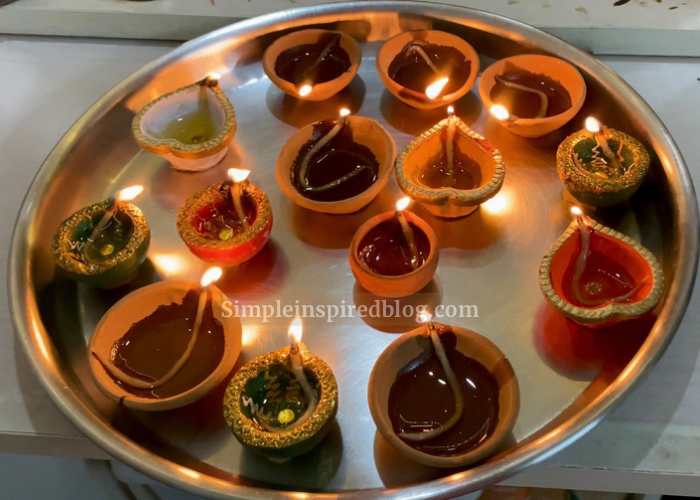Even if you have the slightest doubt, let me reassure you — it is possible to live on very little money and lead a better life.
That’s what I discovered living with less money. Being frugal has transformed my life for the better.
If you decide, you can lead a better life with very little money, too.
You could feel deprived or fulfilled, living on little money. It’s up to you what you choose -happiness or misery.
I totally agree, making ends meet on a low income is super challenging.
The constantly increasing cost of living and low wage rates make life difficult.
But the secret is lowering your needs and wants and being content with whatever little you have.
That’s how you live joyfully.
Otherwise, all the money in the world can’t make you happy.
Some people regard being frugal as being cheap.
That’s because they don’t understand the difference between frugality and penny-pinching.
They consider incurring debts to pay for extravagance completely normal.

Apples on the other side of the wall are the sweetest.
If living with less money makes someone seem small, then I don’t know what drowning in debt appears to be. Can you truly indulge in luxury? Will it have the best flavor or make you feel clamped under the liability?
I mean no disrespect to rich people. Just the idea of getting into debt for a lavish life? I’m not a big fan of it.
Today, let’s discuss some tips on how to live happily on very little money. A few of them are big financial decisions. But they’re necessary to make it work on a low income.
HOW TO LIVE ON VERY LITTLE MONEY: EXTREME FRUGALITY
1| Downsize home:
In today’s “bigger the better” rage, downsizing might sound distressing. Yet, it’s imperative to live with less money.
The home loan installments or rent are usually a massive chunk of your household budget.
A bigger home means a larger pay upfront. Additionally, higher — instalments/rent, interest rates, property taxes, home insurance, repairs, and maintenance. And higher utility bills that you meet every single month.
This is especially a disadvantage if your family is small (as you’re paying for unused extra space) and you are the only breadwinner.
Because if a large space is (mostly) vacant or unused, there’s no point in paying extra for useless square footage. Specifically, if you feel like buying extra stuff (undesirable expenses) to fill those void spaces.
It makes sense to downsize your home to something you can comfortably live in.
In my opinion, a good house should be sufficient for your family to live in, be in a good state (requiring lower maintenance on your part), and be functional, secure, and safe. Most importantly, it should be within your budget. That means low monthly installments.
Little smartness at the time of the home-buying process pays off.
For example, you can make do with the old-fashioned kitchen/bedroom interior (which you can revamp eventually), but the same (kitchen/bedroom) should be functional and ready to use.
When you downsize your home, you also increase cash flow by selling unwanted stuff and being mindful of your purchases in the future. Since there’s less space, and you know how hard you worked to get rid of your things.
2| Move to the lower-cost living (low lifestyle) areas:
Except that you live near forested areas, which I find extreme and do not encourage. A few miles away from the town/city is a good solution.
This is a great way to live on very little money.
For example, my mom and I live across town. But the living expenses like rent, groceries, healthcare, utilities, and clothing where my mom lives are ultra-low. With little adjustments, I see people living a good life.
I call it ‘adjustments’. And not ‘sacrifice’ or ‘compromise’.
Because these terms can make you feel sufficient or poor. When you have more money, you’re able to buy convenience. But when you can’t afford or refuse to pay for comforts/amenities, you think you’re making a sacrifice/compromise. Not true.
Settling for something ordinary and decent is required to get by low wage. No shame in that.
In fact, by moving to such affordable places, you can live in peace. Rather, focus on increasing your earnings and savings, unlike upscale cities, where every single item is so expensive.
3| Learn to live below your means:
Stop keeping up with the Joneses.
Human wants are boundless.
It’s only going to be disheartening and depressing at the other end.
Getting a manicure every week isn’t good for your budget. To live on very little money, you need to work things around. Willingly put time and effort and doing it yourself as much as possible.
For instance, if you love doing nails, buy yourself a couple of nail colors and a topcoat. Paint your nails at home. There are so many good-quality quality affordable options available nowadays. You can put the money (saved on manicures) into your credit card debt.
Another thing is food.
The core food ingredients — rice, beans, veggies, potatoes, flour, oil/butter, salt, and pepper are all you need to create wholesome, hearty meals at home that taste a whole lot better and are great for your health too.
Talking about home-cooked meals, they need not be as elaborate as they used to be in Grandma’s time. A simple vegetable rice with some side dish should be good enough.
Why rice? It is eaten worldwide and is a complete meal when served with beans or vegetables.
When it comes to spending less, spending on clothes deserves attention. Again, I don’t advocate buying second-hand. But consider buying fewer good-quality items. Learn to care for them correctly so they last longer.
4| Create and stick to a budget:
A proper plan for your expenses is essential to live on very little money. You must know where your money is going. Whether you’re spending under control, spending sensibly.
I have written a detailed article on how to create a budget and stick to it.
5| Save Save Save:
Curious whether you can save money on a low income?
Well, every penny counts when it comes to cutting corners.
People who build wealth consider saving cents.
With this outlook, you definitely can save money on a teeny-tiny budget, too.
We have many articles here on simpleinspiredblog.com that talk about numerous ways to save money. You can take a look at them below:
52 Best Frugal Living Tips To Save A Ton Of Money
18 Smart Ways To Cut Your Grocery Bill In Half
10 Painless Ways To Save $100 This Year
9 Habits Of Highly Frugal People
6| Build an emergency fund:
The same applies to building an emergency fund.
Building an emergency fund on a tight budget is achievable.
How long should it take to build up an emergency fund?
Well, that entirely depends on the amount you’ve determined and your monthly savings plan.
First, establish a goal. Determine the emergency fund value (the total amount of your emergency fund) with a deadline. Then, set a monthly target. I suggest keeping the percentage small, so it’s easier to maintain.
Keep the emergency fund remote to avoid the urge to use it.
Now, whenever you receive your paycheck/salary/income, pay yourself first. Put the money in your emergency fund and other savings accounts. Use your salary only after that.
7| Lower your distractions:
To lower your wants and desires, you should avoid situations that would trigger the same.
For instance, if you endlessly follow social media accounts displaying lavish homes, high-end makeup, and clothing brands, or be friends with spendthrifts. You can hardly stop yourself from getting sidetracked and (insanely) buying similar things for yourself.
That’s human nature.
However, you won’t be affected for a prolonged period if you’re someone like me, centered on purpose in life. But yes, sidetracking definitely happens.
You mostly like or want things that other people possess. No matter how many better versions of the same item you already own. It’s always the quality, the color, and the pattern that someone else owns that is better than ours. Right?
You can focus on your life and be content with less money only if you watch, read, or be amongst those on the same mission. There’s no other way around it.
Ditch the comparison game. Be yourself. Be resourceful. Design and live your best life irrespective of the money you have.
8| Have at least one no-spend week in a month:
On a no-spend week, you spend money on nothing extra or unnecessary. You only spend money on bare essentials like groceries, medicines, fuel, etc
Further, you still manage to not spend money (except for medicines) during the no-spend week by planning and buying beforehand.
Check your monthly calendar for birthdays, events, or vacations. If there are no invitations/plans, that window can be great for a no-spend challenge.
Every month, this interval could be your no-spend day. Employ this time or else the ‘perfect time’ would never exist.
You’ll be able to save a lot of money on your no-spend challenge. (More on the no-spend challenge shortly).
9| Transportation:
The three easiest ways you can save a ton of money on transportation —
- owning only one car
- Getting yourself a bicycle or walking your way in the neighborhood
- using public transportation.
Only these three steps can help you save a good amount of money.
By owning a single car, you can prioritize paying it off in less time. And ditch the second/third car to be free of payments, insurance, fuel, and servicing costs.
You need a car for work, groceries, or special events. Still, you can consider meeting up and riding with friends or colleagues. Apart from these events, you can ride a bike or walk in the surrounding areas, which is free of cost.
If you live in a city, take advantage of mass transit. I have taken public transport for years to work previously. I can assure you that with good music on your phone, it’s a pretty good experience.
10| Budget-friendly entertainment and festivities:
With thoughtful planning, birthdays, anniversaries, and festivities can be made exceptional at home.
There are a host of ‘budget-friendly birthday parties and anniversary celebrations’ ideas on the internet. You can use your imagination.
If I recall the celebrations in my childhood, I don’t remember my grandma doing anything fancy.
We restored and used the same decor until it was outdated.

My mommy, aunt, and grandma cooked food at home as they hardly had the alternative to outsource.
What made it special was the traditional food they made
The delightful games we played.
The love and affection that came from family and friends.
The thoughts and efforts that went into making ordinary things remarkable.
No one cared about the fanciness. Everyone just celebrated wholeheartedly.
Final words:
These steps may sound extreme to some, but they’re practical to get by with very little money.
So now you know why I said being frugal made my life better and happier.
Life is so comfortable and relaxing, living on a low income. No pressure to please anyone. No thought of cakes and ale. No labor to pay for big houses and extra cars. Just plain emphasis on purpose in life.
Be sure to share your thoughts in the comments section below. Thank you so much for reading.
Never spend your money before you have earned it — Thomas Jefferson

Leave a Reply
You must be logged in to post a comment.